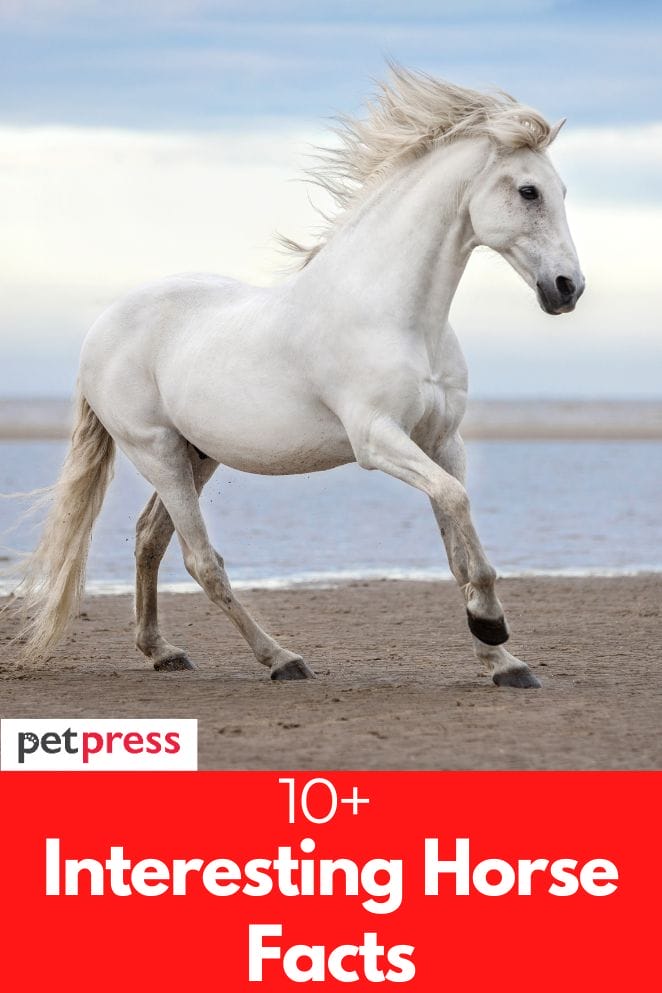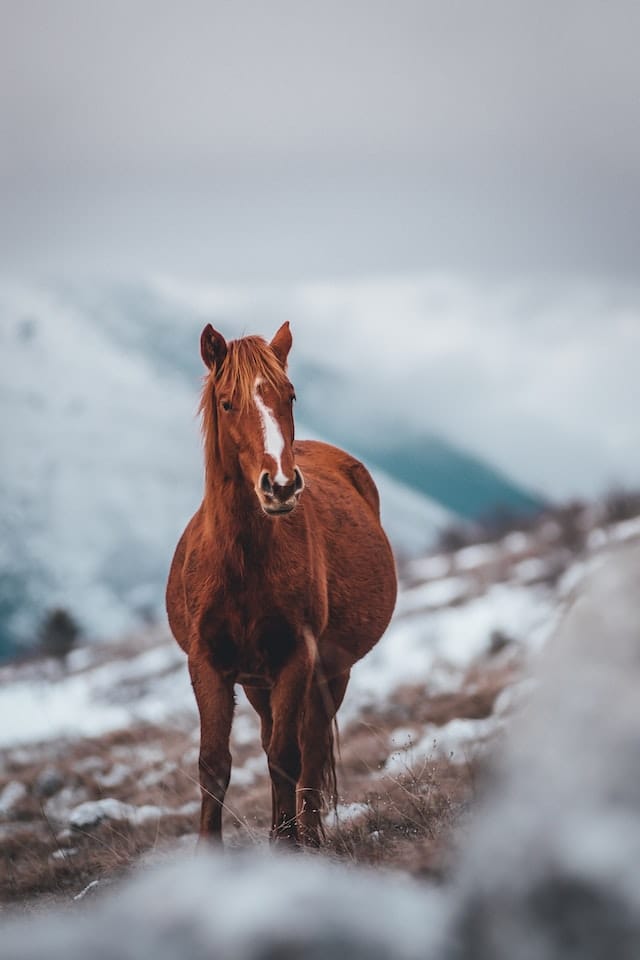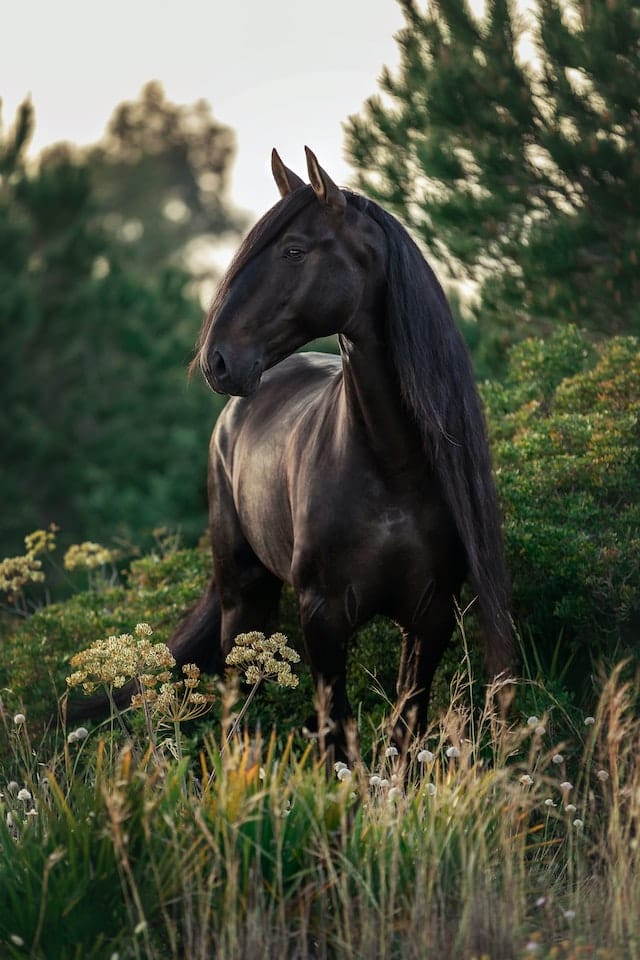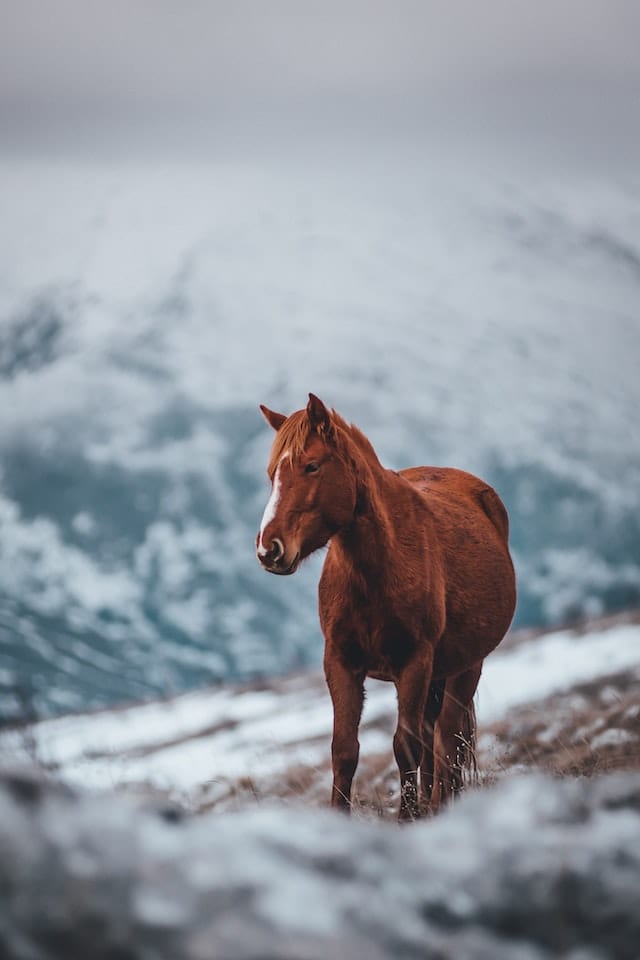
Horses are fascinating animals that have been a part of human culture for thousands of years.
They are admired for their strength and beauty and have played an important role in history, from being used as work animals to serving as war horses during times of conflict.
There is much that we still don’t know about these magnificent creatures and scientists continue to study and learn more about them every day.
Whether you are a horse enthusiast or simply interested in learning more about these beautiful animals, here are some interesting facts about horses that will fascinate and amaze you.
Fact #1: Horses have been domesticated for over 5,000 years.
Horses have been an important part of human culture for thousands of years, having been domesticated by humans as early as 5,000 years ago.
This long history of domestication has allowed horses to become one of the most widely used and revered animals in human society, playing a vital role in numerous aspects of human life and culture.
Fact #2: There are over 60 million horses in the world.
With over 60 million horses in the world, it is clear that these magnificent animals are a vital and important part of human society.
Horses have been used for work, transportation, war, sport, and entertainment for thousands of years, and their importance shows no signs of decreasing any time soon.
Fact #3: The horse is the national animal of Kazakhstan.
The horse is the national animal of Kazakhstan, a country that has a long history and deep cultural connection to these beautiful animals.
Horses have been used in Kazakhstan for work, transportation, war, sport, and entertainment for many centuries, and they play an important role in the culture and identity of the Kazakh people.
Fact #4: The average horse can run up to 55 km/h (34 mph).

The average horse is a remarkably fast and powerful animal, capable of running at speeds of up to 55 km/h (34 mph).
This makes them well-suited for many different purposes, from work animals that can quickly travel long distances to war horses that are able to outrun and outmaneuver their opponents.
In addition to their speed, horses are also known for their strength and endurance, making them one of the most versatile and useful animals in human history.
Fact #5: A horse’s heart weighs about 9 kg (20 lb).
A horse’s heart is an incredibly powerful and impressive organ, weighing in at around 9 kg (20 lb) on average.
This weight gives the horse’s heart incredible strength, allowing it to pump blood throughout the body with great force and efficiency.
In addition to its massive size, a horse’s heart is also highly adaptable and able to adapt to different levels of activity and stress to keep the horse healthy and functioning at its best.
Because horses are such active animals, with a high level of physical activity required for their survival, having a strong and resilient heart is essential for their health and well-being.
Fact #6: A horse’s stomach can hold up to 15 liters (4 gallons) of food.
With its enormous size and powerful digestive system, a horse’s stomach can hold up to 15 liters (4 gallons) of food at a time.
This allows the horse to eat large quantities of food at once, fueling its high levels of activity and physical exertion.
The stomach is also able to adapt to different types and quantities of food, allowing it to effectively digest and process a wide range of different types of food.
Fact #7: Horses have 18 different muscles in their lips.
Horses are incredibly muscled animals, with over 600 different muscles throughout their bodies.
Perhaps one of the most fascinating and unique muscle groups on a horse is its lips, which contain 18 different muscles that give them a wide range of motion and control.
These muscles allow horses to use their lips for many purposes, from grooming themselves to controlling their food as they eat.
They also play an important role in communication, facilitating the expression of a wide range of different emotions through touch and movement of the lips.
Fact #8: Horses have 32 different teeth.
Horses are well known for their powerful and impressive teeth, which give them the ability to chew and process a wide range of different types of food.
With 32 individual teeth in total, a horse’s mouth is filled with an array of different shapes and sizes that help it to break down and digest its food effectively.
Fact #9: A newborn horse is called a foal.

When a horse is born, it is called a foal. This name comes from the word “foal,” which means “young.”
A newborn horse will nurse from its mother until it reaches somewhere between 1 and 2 years old, at which point it will be fully weaned off of its mother’s milk and begin to eat solid food like other adult horses.
Fact #10: Horses have excellent vision, hearing, and sense of smell.
In addition to their speed and strength, horses are also well-known for having excellent vision, hearing, and sense of smell.
These sensory abilities give them an incredible level of awareness and perception that allows them to navigate their environment and communicate with other horses.
Horses can see in color and at great distances, allowing them to spot potential threats quickly and react accordingly.
They also have very acute hearing that can pick up even the smallest sounds from long distances, helping them to sense danger or detect food sources.
Fact #11: A group of horses is called a herd or a stable.
A group of horses is typically called either a herd or a stable.
A horse herd can be made up of any number of horses, from just a few individuals to hundreds or even thousands of horses at once.
A stable, on the other hand, are generally much smaller and often refers specifically to groups that are kept together for work purposes, such as a stable of racehorses or a cavalry stable.
Fact #12: Horses communicate primarily through body language.
Horses communicate primarily through body language, using facial expressions, postures, and movements to convey a wide range of information.
These non-verbal forms of communication are often subtle and nuanced but play an important role in how horses interact with each other.
In addition to their body language, horses also use vocalizations, such as whinnies and nickers, to express various emotions and desires.
Fact #13: The scientific name for the horse is Equus caballus.
The scientific name for the horse is Equus caballus.
This name refers to the genus and species of the horse, which are both based on its physical characteristics and behavior. The term “Equus” is broadly used to refer to all members of the equine family, whereas “caballus” refers specifically to horses.
Fact #14: Horses are native to the Americas, Europe, and Asia.
Horses are native to several different regions around the world, including the Americas, Europe, and Asia.
Horses have been domesticated for thousands of years and are an important part of many different cultures and traditions around the world.
Today, there are still a number of wild populations of horses that can be found in their native habitats across these regions.
Fact #15: The ancestors of the modern horse were much smaller.

The ancestors of the modern horse were much smaller than today’s horses and resembled the size of a dog.
These early horses have first domesticated in Asia over 6,000 years ago, and scientists believe that they gradually evolved into larger animals as humans began selectively breeding them for specific traits like speed or strength.
While many different ancient species of the horse have existed over the centuries, only a few remain today, including the modern horse.
Fact #16: There are over 350 breeds of horses in the world today.
Despite their long history and widespread distribution around the world, there are actually a relatively small number of different species of horse in existence today.
However, within these few species, there is an incredible amount of variation in terms of body shape, size, coloration, and other physical traits.
In total, there are over 350 recognized breeds of horses in the world today, each of which has been developed through selective breeding to exhibit specific characteristics.
Whether you are a horse owner or simply an admirer of these magnificent animals, there is no denying the many fascinating and unique qualities that make horses such special creatures.
With their incredible sensory abilities, strong social bonds, and keen problem-solving skills, horses are truly one of the most intriguing animals in the world.
So the next time you set eyes on a horse, take a moment to appreciate all that they have to offer!
- Does Cat Litter Melt Ice? The Complete Guide to Winter Safety - January 30, 2026
- Happy Tail Dogs: Understanding This Common Canine Condition - January 29, 2026
- How Cold Can Outdoor Cats Handle? Feline Winter Safety - January 27, 2026


GIPHY App Key not set. Please check settings